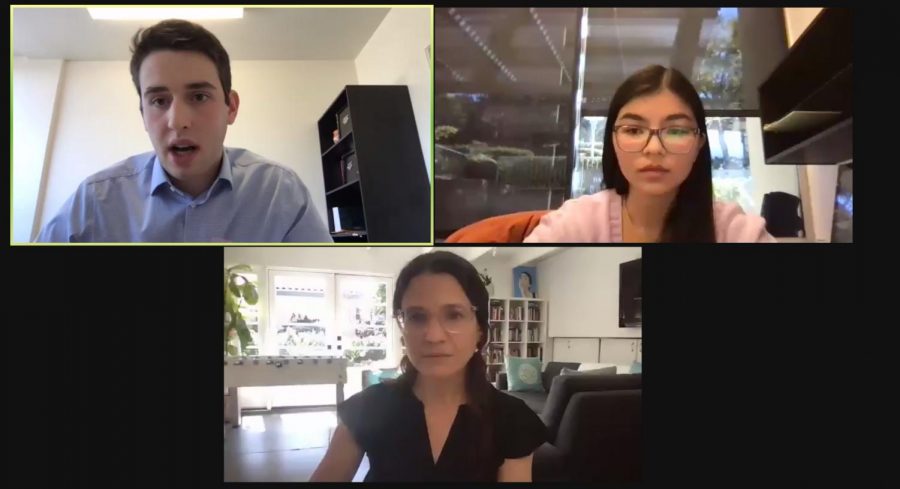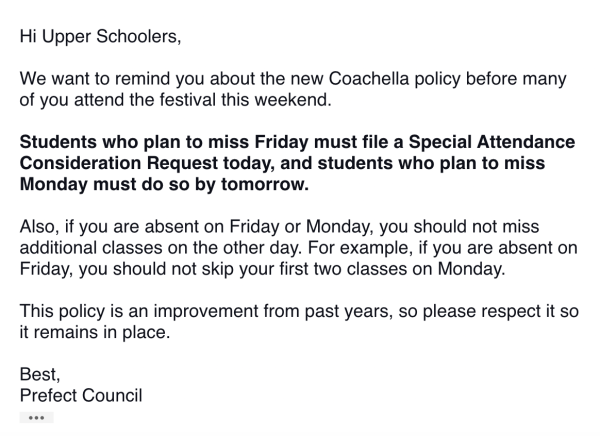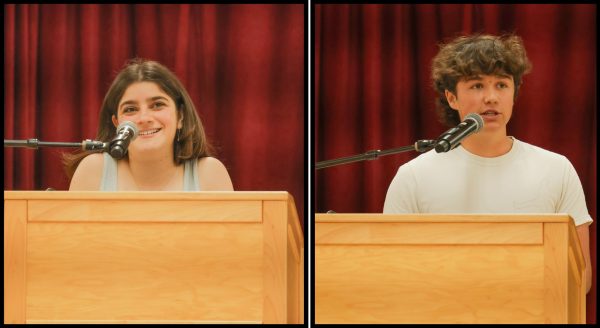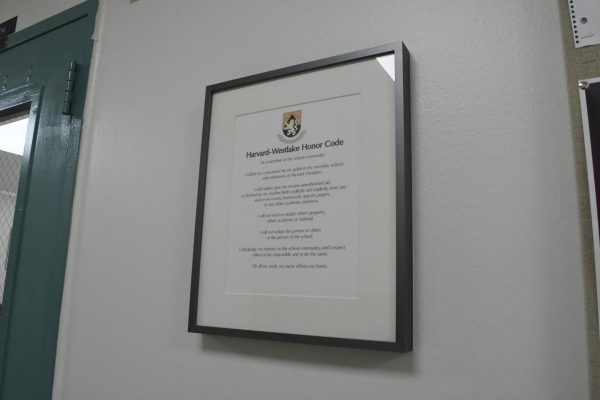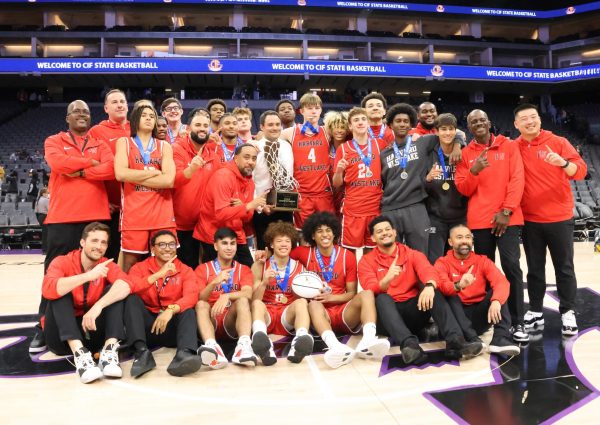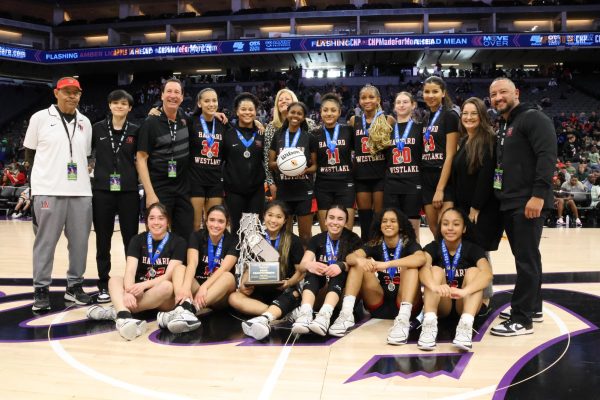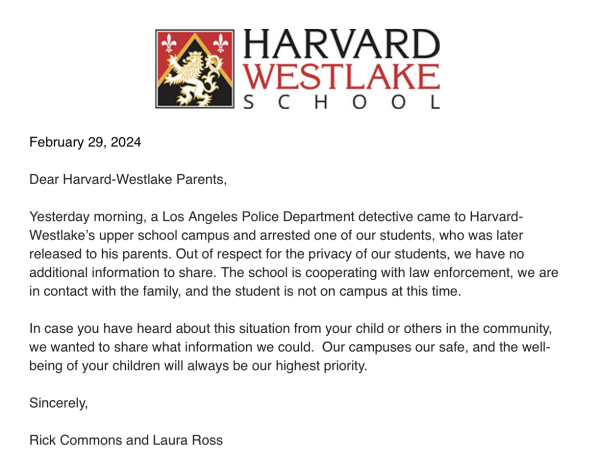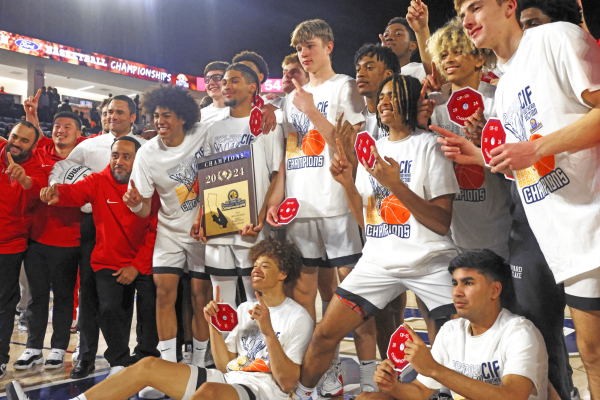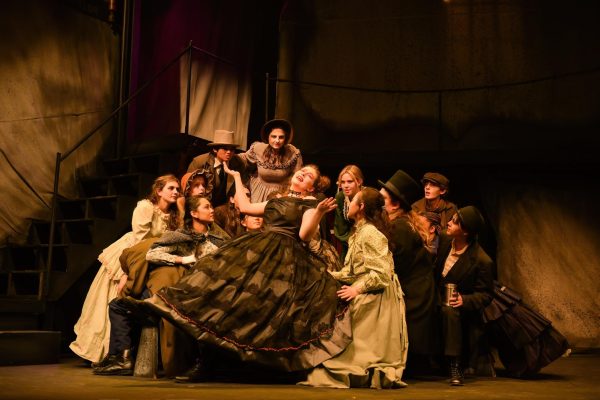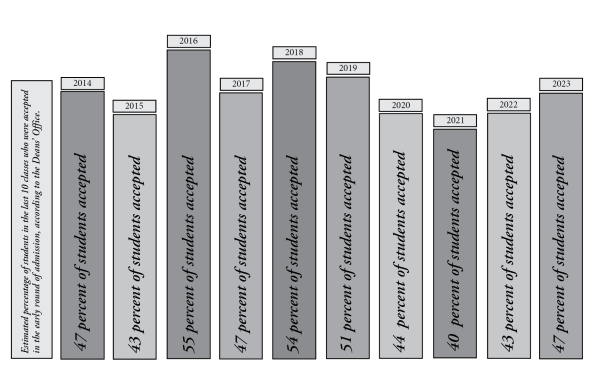Rabbi Sharon Brous speaks on faith-based activism
Rabbi Brous speaks in a discussion moderated by Community Council members (left-right) Jonathan Cosgrove ’21 and Mia Shelton ’21
March 27, 2021
Rabbi Sharon Brous, the founder of the Jewish congregation IKAR, discussed the importance of faith and activism to students during Community Flex Time Tuesday, March 23.
Brous spoke about the history of antisemitism and its role as a conspiracy theory in motivating white-nationalist movements. She said modern-day antisemitism is often depicted as rising like a tide or infecting like a virus, but that these depictions are inaccurate.
“We talk about it like it’s part of the natural world, but it’s not,” Brous said. “It’s actually part of a machinery of fear and division that is used by people who profit from this conspiracy theory emerging and re-emerging in our society.”
Brous said in the midst of a reckoning with racism in America, the fight against internalized antisemitism is vital in activism initiatives.
“A lot of people who I have encountered in the racial justice space, who dedicate their lives to fighting racism and bigotry, have internalized antisemitism. And they’ve never really looked at it before, in part because they don’t really understand where it comes from,” Brous said. “They don’t understand that the people who are fueling that machinery of fear and division have a stake in driving Jews away from other minority communities in this country.”
Brous explained her views on social injustices and the role faith plays in taking action
In regards to antisemitism in social justice movements, Brous said to engage with misconceptions rather than avoid difficult conversations.
“If we’re hurt because some of the leaders in the movement don’t understand antisemitism, the answer is not to condemn and to walk away,” Brous said. “The answer is to re-engage, more deeply engage and bring our stories to the forefront in these conversations when we’re able to sit down together and really talk about where our pain is, where our anguish is and where our common dreams are.”
After listening to Brous’ presentation, Daniella Goldrich ’23 reflected on antisemitism in America.
“Growing up in a time where antisemitism is on the rise and seeing how people around the country are responding, it’s definitely been tough and frustrating,” Goldrich said. “I think it’s extremely important that in order to tackle any issue, we need to do it together. You’re not going to make any progress if division is stronger than reaching the end goal.”
Brous said the focus on respect and creating bonds is at the center of spirituality’s role in social justice.
“It says in this ancient text that wherever any person goes, that person is surrounded by a procession of angels blowing shofarot (blowing trumpet) and saying ‘Make way, for an image of the holy one approaches,’” Brous said. “I thought about George Floyd and the way that he was seen when he walked into that store and the way that he was seen by the officer who had his knee on his neck. I thought about the way that so many people throughout his life saw him when he walked by.”
Brous ended her presentation by reminding students of faith’s role in building a better world.
“How could we build a society that is actually as just and loving as every single person in God’s image deserves to be treated?” Brous said. “That, I think, is the challenge of this time, whether you see yourself as a person of faith or not a person of faith. How can we, together, build a society that honors the dignity of every single human being?”


































